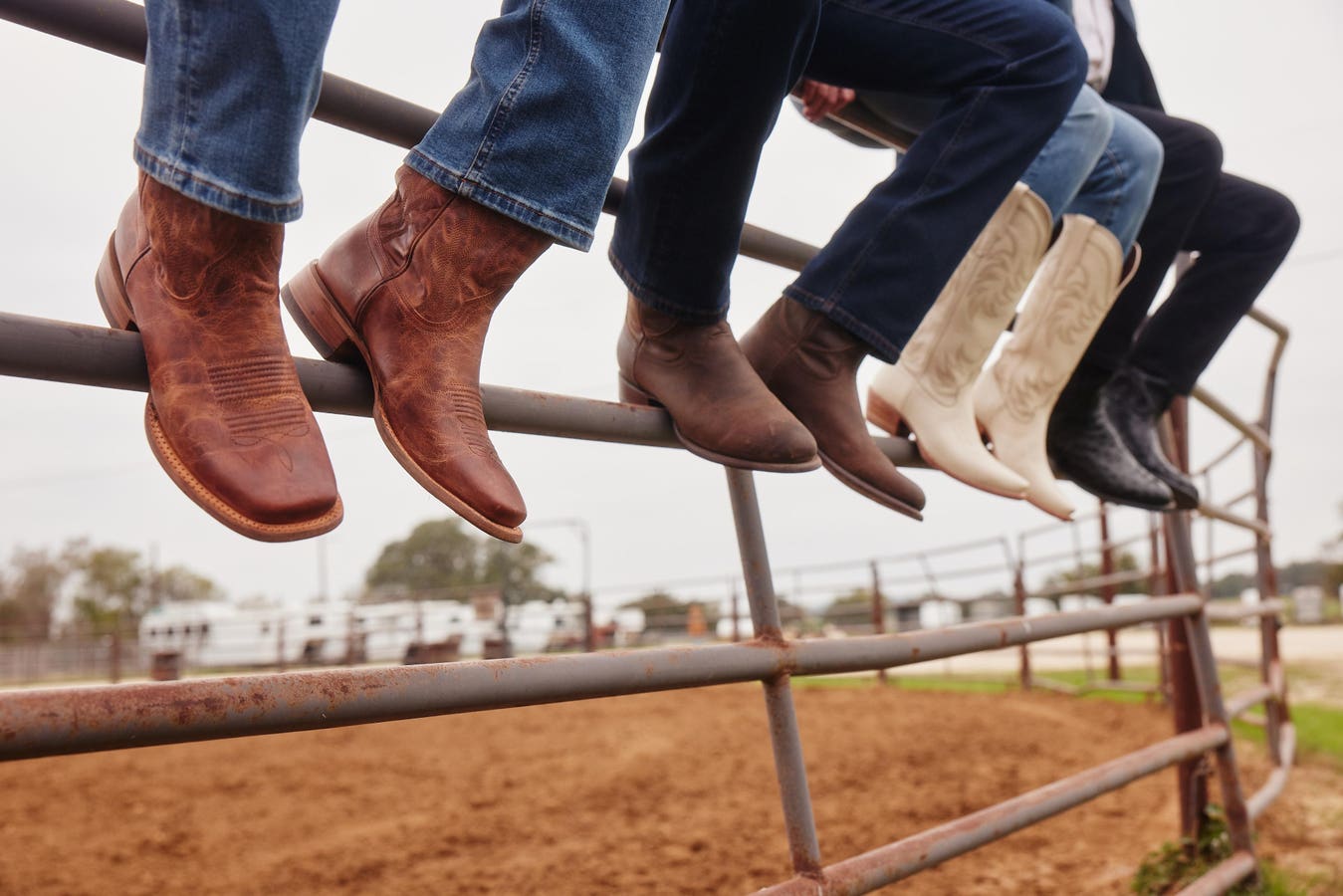Tecovas, the industry’s first digitally native boot maker, is on fire. Founded in 2015 by investment banker turned entrepreneur Paul Hedrick with the aim to become the “Warby Parker” of cowboy boots, it’s taken on the industry’s legacy leaders and won, including century-old Frye, Justin, Lucchese and Tony Lama, as well as fairly new entrants Ariat, Dan Post and Durango.
Tecovas is at the top of Esquire’s “13 Best Cowboy Boots for Men in 2024” list, after first getting its endorsement in 2019. Tecovas beats Esquire’s top luxury brand Lucchese on price-value and the perennial problem with cowboy boots: it takes time to wear them in. Tecovas promises out-of-the-box comfort.
In its first year of operation, it netted $1 million in sales and grew to over $200 million in 2023. It is projected to grow double-digits this year, and “we are profitable,” shared president and CEO David Lafitte. Lafitte joined the company a little over two years ago after transitioning from a nearly 20-year career in corporate law then into chief operating officer for ten years at Deckers Brands of Ugg and Hoka fame.
After opening its first brick-and-mortar store in hometown Austin, TX in 2019, Tecovas will end this year with 42 stores, each conveying Texas-sized hospitality with an in-store bar where guests can get a complimentary refresher, either of the spirited or spirit-free kind. The largest concentration of Tecovas stores are in the Western states, but it’s making inroads into the South and up North in Ohio, Pennsylvania and Boston.
With such dynamic growth and recognition as tailwinds, Tecovas is now taking the next step in its evolution and launching into wholesale partnerships with specialty Western retailers, nearly doubling its number of physical locations and greatly expanding its reach.
It has established partnerships with nine retailers, such as Texas Boot Company, Boots Etc, National Roper Supply, Bullocks Western Store, Lebos and more, totaling 36 stores in 10 states. They will now carry Tecovas boots at prices consistent across all channels.
“This isn’t a revenue play. We’ve had a fantastic economic payback in our stores and online,” Lafitte explained. “We think wholesale is important long term for brand awareness. Anytime you can get the physical exposure of your products in multiple formats, it’s important for brand recognition and market share.”
Walk Before Run
My first question upon learning of Tecovas’ wholesale expansion and seeing its list of retail partners was “What about Boot Barn?” Boot Barn is the undisputed leader in Western wear with nearly 400 stores and $1.7 billion in sales last year.
For Tecovas, it’s the simple maximum of learning to walk before you run. “We are choosing our strategic partners carefully to start with independents and mom-and-pop stores that have been in the family for generations. We aim to be a great partner in wholesale and and make sure we can deliver. We don’t want to get ahead of ourselves,” Lafitte said.
He learned that lesson with Deckers when its Ugg and Hoka brands took off, challenging the supply chain to fill the needs of major retailers. The majors also have stringent vendor compliance requirements which can challenge their partners too.
Lafitte isn’t crossing off large retailers in the future, but the aim is to take it one step at a time and learn the ropes about how to be the brand of choice in specialty retail. It’s what he deems a “scalable and profitable approach” to growth.
Western Adjacency
Now offering a full range of Western boots and apparel for men and women, including a women’s bridal collection of white boots for gals who want to look Western chic on their wedding day, Tecovas aims to be a lifestyle brand that can dress a customer head to toe.
But beyond Western fashion, it sees opportunities in what it terms “Western adjacent” categories. For example, it recently introduced a men’s slip-on loafer, called Monterrey.
“We clearly have permission to get into some Western adjacent products that still have our brand DNA code of craftsmanship and detailed quality,” Lafitte continued.
The adjacent strategy is for those not ready for cowboy boots or full-on Western styles, but still want some of the Tecovas savoir-faire.
Halo Effect
By opening wholesale retail partnerships, Tecovas can get the proven “halo effect” from exposing new customers to the brand without the heavy investment in opening and operating its own stores.
But perhaps more important is that wholesale partners can provide a broader perspective across the market to help guide the future direction for the brand.
“Working with wholesalers provides additional third-party feedback on product performance, market demand and customer trends and preferences,” observed Tom Groves, senior director of account management at NuOrder by Lightspeed, a company that specializes in B2B commerce in retail.
“This data can inform product development, marketing strategies and inventory management decisions for the brands’ own DTC channel,” Groves continued.
DTC brands are constantly challenged by not having a line of sight across the broader consumer market from potential customers who haven’t visited its website or stores. Independent retail partners can fill that gap and they also are more likely to call out needed improvements that company employees might be hesitant to share.
With Tecovas’ first choice of retail partners being smaller independents, not big corporate giants, it is bound to get earlier and even more frank feedback to help set the direction for the brand over the long haul.
Read the full article here





